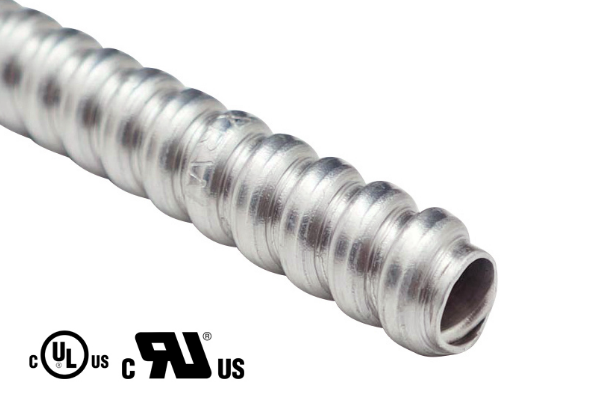Sep. 20, 2023
Flexible conduit and flexible metal conduit (FMC) are both essential components in electrical installations, but they serve different purposes and have distinct characteristics. In this detailed explanation, we will explore the key differences between flexible conduit and flexible metal conduit, helping you make informed choices for your specific electrical needs.
Flexible Conduit: An Overview
Flexible conduit, often referred to as non-metallic conduit or simply "conduit," is a protective tubing or piping system used in electrical installations. It is typically made from non-metallic materials such as plastic, PVC (polyvinyl chloride), or fiberglass. The primary function of flexible conduit is to:
1. Protect Electrical Wiring: Flexible conduit provides a protective barrier for electrical wires and cables, shielding them from physical damage, environmental factors, and moisture.
2. Contain and Organize Wiring: Conduit helps organize and contain electrical wiring, ensuring a neat and safe installation.
3. Facilitate Wire Pulling: It simplifies the process of pulling wires through the conduit, especially in complex installations.
4. Adapt to Complex Configurations: Flexible conduit can bend and conform to various angles and shapes, making it suitable for installations with tight corners and bends.
Flexible Metal Conduit (FMC): An Overview
Flexible metal conduit, on the other hand, is a specific type of conduit made from metal materials, typically steel or aluminum. It shares some similarities with flexible conduit but has distinct characteristics and advantages:
1. Metal Construction: The most significant difference is the material used. FMC is made of metal, providing it with superior durability and strength compared to non-metallic conduit.
2. Enhanced Mechanical Protection: FMC offers robust mechanical protection to electrical wires, making it suitable for more demanding and high-risk environments.
3. Resistance to Environmental Factors: FMC is resistant to corrosion, UV exposure, and extreme temperatures, making it suitable for both indoor and outdoor applications.
4. Grounding Capability: Due to its metal composition, FMC can serve as an effective grounding path in electrical systems when properly installed.

Aluminum Flexible Metal Conduit (Reduced Wall)
Key Differences Between Flexible Conduit and Flexible Metal Conduit
To better understand the distinctions between these two conduit types, let's delve deeper into their differences:
1. Material Composition:
- Flexible Conduit: Typically made from non-metallic materials, such as plastic or PVC.
- Flexible Metal Conduit (FMC): Made from metal, usually steel or aluminum.
2. Durability and Strength:
- Flexible Conduit: Offers moderate durability and protection but may not withstand harsh conditions.
- Flexible Metal Conduit (FMC): Provides superior durability and mechanical protection, ideal for challenging environments.
3. Corrosion Resistance:
- Flexible Conduit: Vulnerable to corrosion in corrosive environments.
- Flexible Metal Conduit (FMC): Resistant to corrosion and suitable for outdoor use.
4. Use Cases:
- Flexible Conduit: Often used in less demanding indoor installations where cost-effective protection is sufficient.
- Flexible Metal Conduit (FMC): Preferred in installations requiring robust protection, outdoor use, or where grounding is necessary.
5. Flexibility:
- Flexible Conduit: Offers flexibility but may not bend as easily as FMC.
- Flexible Metal Conduit (FMC): Retains excellent flexibility, allowing it to navigate tight corners and bends.
Choosing Between Flexible Conduit and Flexible Metal Conduit
The choice between flexible conduit and flexible metal conduit depends on the specific requirements of your electrical installation:
When to Choose Flexible Conduit:
- If cost-effectiveness is a primary concern.
- For indoor installations with minimal exposure to moisture or harsh environmental conditions.
- In applications where flexibility is less critical.
When to Choose Flexible Metal Conduit (FMC):
- For outdoor installations where exposure to weather and moisture is a concern.
- In environments with high risk of physical damage or exposure to corrosive substances.
- When grounding is required for electrical safety.
Conclusion
Flexible conduit and flexible metal conduit serve distinct purposes in electrical installations. While flexible conduit is suitable for many indoor applications, flexible metal conduit (FMC) shines in more demanding environments, offering superior protection, durability, and resistance to environmental factors. The choice between the two depends on the specific needs of your electrical project, ensuring that safety and functionality are always top priorities.
If you want to read more informative articles on Flexible conduit and flexible metal conduit, visit [https://www.conduit-flexible.com/news/]

















